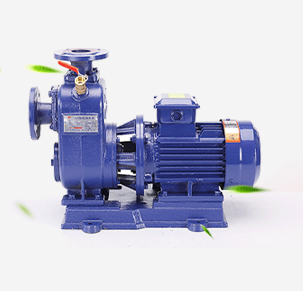English
- Afrikaans
- Albanian
- Amharic
- Arabic
- Armenian
- Azerbaijani
- Basque
- Belarusian
- Bengali
- Bosnian
- Bulgarian
- Catalan
- Cebuano
- Corsican
- Croatian
- Czech
- Danish
- Dutch
- English
- Esperanto
- Estonian
- Finnish
- French
- Frisian
- Galician
- Georgian
- German
- Greek
- Gujarati
- Haitian Creole
- hausa
- hawaiian
- Hebrew
- Hindi
- Miao
- Hungarian
- Icelandic
- igbo
- Indonesian
- irish
- Italian
- Japanese
- Javanese
- Kannada
- kazakh
- Khmer
- Rwandese
- Korean
- Kurdish
- Kyrgyz
- Lao
- Latin
- Latvian
- Lithuanian
- Luxembourgish
- Macedonian
- Malgashi
- Malay
- Malayalam
- Maltese
- Maori
- Marathi
- Mongolian
- Myanmar
- Nepali
- Norwegian
- Norwegian
- Occitan
- Pashto
- Persian
- Polish
- Portuguese
- Punjabi
- Romanian
- Russian
- Samoan
- Scottish Gaelic
- Serbian
- Sesotho
- Shona
- Sindhi
- Sinhala
- Slovak
- Slovenian
- Somali
- Spanish
- Sundanese
- Swahili
- Swedish
- Tagalog
- Tajik
- Tamil
- Tatar
- Telugu
- Thai
- Turkish
- Turkmen
- Ukrainian
- Urdu
- Uighur
- Uzbek
- Vietnamese
- Welsh
- Bantu
- Yiddish
- Yoruba
- Zulu
Telephone: +86 13120555503
Email: frank@cypump.com
Nov . 07, 2024 19:42 Back to list
Durable Transfer Pumps for Chemical Resistance and Efficient Liquid Handling Solutions
Chemical Resistant Transfer Pumps Essential Tools for Safe Fluid Handling
In various industrial applications, efficient and safe fluid transfer is paramount. Particularly in sectors such as chemical manufacturing, pharmaceuticals, and petrochemicals, the ability to transport aggressive substances safely is crucial. This is where chemical resistant transfer pumps come into play. These specialized pumps are designed to handle a wide range of corrosive and hazardous chemicals, ensuring both efficiency and safety in fluid transfer operations.
Understanding Chemical Resistant Transfer Pumps
Chemical resistant transfer pumps are designed to withstand the corrosive nature of various chemicals without degrading their internal components. They are built using materials such as polypropylene, polyvinylidene fluoride (PVDF), and other advanced plastics or metal alloys that can resist chemical damage. The construction materials of these pumps not only provide durability but also prevent contamination of the transferred substances, which is critical in many industries.
These pumps come in various designs, including centrifugal pumps, diaphragm pumps, and peristaltic pumps, each suited for different applications and types of chemicals. Centrifugal pumps, for example, are widely used for low-viscosity fluids, while diaphragm pumps are better suited for more viscous or slurry-like materials.
Key Features to Consider
When selecting a chemical resistant transfer pump, several features should be considered
1. Material Compatibility Ensure that the pump materials are compatible with the specific chemicals being handled. This is essential to prevent pump failure due to corrosion or chemical reaction.
2. Flow Rate and Pressure Different applications require different flow rates and pressure levels. Understanding the specific needs of your operation will help in selecting the right pump.
3. Safety Features Given the nature of the fluids being handled, safety features such as leak detection systems, pressure relief valves, and double-walled containment are vital.
4. Ease of Maintenance Considering the running costs, select a pump that is easy to maintain and repair. This will minimize downtime and enhance productivity.
chemical resistant transfer pump

5. Portability Depending on the application, you may need mobile solutions. Many chemical resistant pumps come in portable designs suited for various locations and applications.
Applications of Chemical Resistant Transfer Pumps
Chemical resistant transfer pumps are employed across multiple industries, including
- Chemical Processing Used to transport raw chemicals and by-products during manufacturing processes. - Pharmaceuticals For the safe transfer of active pharmaceutical ingredients (APIs) that can be hazardous to health. - Petrochemical Industry Essential for handling crude oil, solvents, and other petroleum-based fluids. - Water Treatment Used to transfer corrosive chemicals such as chlorine and sulfuric acid for water treatment processes.
Benefits of Using Chemical Resistant Transfer Pumps
1. Safety By using specialized pumps capable of handling hazardous materials, companies can enhance workplace safety and reduce the risk of spills and leaks.
2. Operational Efficiency These pumps are designed for high performance, allowing for rapid and efficient transfer of chemicals, ultimately leading to increased productivity.
3. Cost-Effectiveness While the initial investment may be higher for chemical resistant pumps, the reduced risk of downtime, maintenance, and replacement costs makes them a more economical choice in the long run.
4. Environmental Protection By minimizing leaks and spills, chemical resistant transfer pumps help protect the environment and ensure compliance with environmental regulations.
Conclusion
In summary, chemical resistant transfer pumps are an indispensable asset for industries handling corrosive and hazardous materials. Their ability to safely and efficiently transport various chemicals not only protects the workforce and environment but also enhances overall operational efficiency. As industries continue to evolve, the importance of reliable and effective fluid handling solutions will undoubtedly increase, solidifying the role of chemical resistant transfer pumps in modern manufacturing and processing operations. Investing in the right pump system can lead to significant long-term benefits, making it a critical component of successful industrial practices.
-
Reliable Non-Clog Sewage Pumps with GPT-4-Turbo Tech
NewsAug.04,2025
-
High-Performance Air Pumps for Sand & Gravel | Efficient Transport
NewsAug.03,2025
-
ISG Series Vertical Pipeline Pump - Chi Yuan Pumps Co., LTD.|Energy Efficiency, Corrosion Resistance
NewsAug.03,2025
-
ISG Series Pipeline Pump - Chi Yuan Pumps | Energy Efficiency&Compact Design
NewsAug.03,2025
-
ISG Series Vertical Pipeline Pump - Chi Yuan Pumps Co., LTD.|High Efficiency, Low Noise, Durable
NewsAug.02,2025
-
ISG Series Vertical Pipeline Pump - Chi Yuan Pumps | High Efficiency, Low Noise
NewsAug.02,2025










